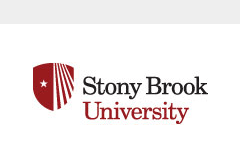Document Type
Article
DOI
dx.doi.org/10.1016/j.clepro.201704.169
Publication Date
2017
Keywords
food waste; environmental impact, composting, anaerobic digestion, incineration, LCA
Abstract
A Life Cycle Assessment (LCA) was conducted to determine the environmental impacts of several waste treatment scenarios for a suburban New York (U.S.) municipality. The study goal was to determine if separate food waste recovery and management was environmentally sounder than waste-to-energy incineration (the baseline case). Three alternatives, enclosed tunnel composting, enclosed windrow composting, and anaerobic digestion with subsequent enclosed windrow composting of residuals, were examined considering the entire residual waste stream (not just separated food wastes). Impact categories assessed were climate change, environmental eutrophication and acidification, resource depletion, and stratospheric ozone depletion. A normalized, aggregated impact assessment was created to compare the treatments across categories. The anaerobic digestion scenario scored best, followed by the tunnel composting and the baseline waste to energy incineration scenarios, and, last, the enclosed windrow composting scenario. Although it was possible to select an alternative that decreased environmental burdens compared to the business-as-usual case, all modeled scenarios resulted in higher overall environmental burdens than savings, underscoring the need to avoid creating waste to conserve resources and reduce environmental burdens, and ultimately lead to more sustainable waste management practices.
Recommended Citation
Thyberg, Krista L. and Tonjes, David J., "The Environmental Impacts of Alternative Food Waste Treatment Technologies in the U.S." (2017). Technology & Society Faculty Publications. 3.
https://commons.library.stonybrook.edu/techsoc-articles/3
Supplementary material
Included in
Environmental Engineering Commons, Environmental Indicators and Impact Assessment Commons, Sustainability Commons
